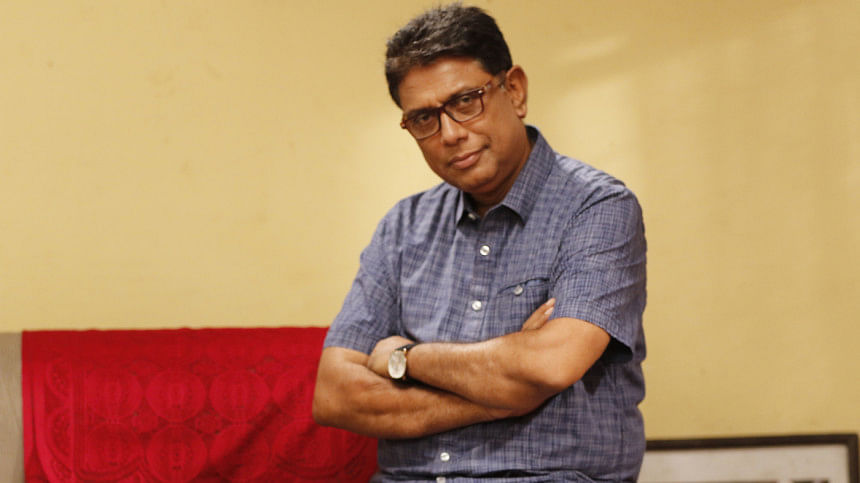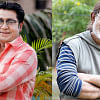We consider intimidation and blame-shifting to be ‘patriotism’: Afzal Hossain

Renowned actor Afzal Hossain, known for his insightful commentary on social issues, often shares his reflections through eloquent and thought-provoking writing. Without directly naming individuals, he subtly critiques current societal concerns, weaving his observations with meticulous care and sharp language.
As the country grapples with growing inequality and increasingly polarized views on social reform, Hossain highlights the hypocrisy of those who choose to defame the nation while still living within it. In his view, patriotism today is being reduced to mere declarations rather than meaningful action. He draws attention to individuals who vocally criticise the government yet make no effort to support or improve the systems that serve the people.
Here is the full text of Afzal Hossain's recent post:
"We claim to love our country, yet it feels good to go around telling others that the nation is in crisis or heading toward a great disaster. There's a strange satisfaction in heating up the atmosphere with such talk. A sense of pleasure arises. It's a very peculiar kind of love. And this strange love keeps bringing calamities into our lives—yet we never learn. We remain the same.
Just as some people feel relaxed after a full meal and let out a belch, some also feel the urge to make that sound heard by everyone, to show they've eaten well—that's bad manners, a kind of perversion. The way many people flaunt and broadcast their patriotism is quite similar to that belch.
Is patriotism something that needs to be proven? A group of people wants to know how much patriotism lies within someone, judges it, and delivers a verdict. A farmer, while plowing the field, doesn't suddenly spread his arms wide and shout, 'I love my country!' He dreams big through his field and his harvest—that is his patriotism.
The hardworking masses of this country toil endlessly. They're exhausted, struggling to find a way to survive. They have no time to ponder the spelling, meaning, benefits or drawbacks of patriotism. Their blood and sweat—through their very lives—express their love for the country. They don't need to say it aloud: 'I love my country, I love my country.'
A kind of 'patriotic' society has emerged—one that constantly seeks out crises in the nation, problems in governance, and talks about them. 'This isn't working, why hasn't that happened, this person's role is questionable, does that person even care about the country?' They throw around dozens of such questions to stir the pot. That heats up the crowd, and once the crowd is stirred, one can become the center of attention—fame and influence begin to rise rapidly.
They carefully choose topics that will raise public anxiety—then sprinkle salt, onion, green chilies and more into the mix to whip up a delicious dish. And a large group waits eagerly every day for a serving of that tasty dish.
Many of us enjoy being agitated and spreading agitation—but it brings no peace, no real comfort. At times, it feels like those obsessed with the thrill of hunting have turned the country into a muddy pond. In that murky water, there's chaos—shouting, diving, scrambling—by a hundred and one fishermen. When they're out of breath, fights break out—leading to scuffles and brawls.
Scuffles and brawls have become part of our version of patriotism. Blaming others without understanding or knowledge is also considered patriotism. It's like that story of two dogs fighting over a bone—while they bit and wrestled each other, a crow swooped in and flew away with the bone.
So many times, even after winning, we repeatedly lose to some crow. Even a person with the slightest wisdom should realize that if we truly want the country to prosper, we need to bring clarity to our own minds, show some restraint, make small sacrifices, and practice patience.
We need to hope—and believe—that the country will be better tomorrow than it is today. Illness is cured with medicine and treatment—but the patient must also believe, must want to get better. Keeping faith in the heart is also a kind of medicine. A strong-minded person doesn't easily break down in adversity. It is the weak, those without inner strength, who surrender at the mere mention of battle.
Because we keep responding to the call of the path that leads to defeat and fear, we fail to hear the call of the path that leads to the lion's gate."

 For all latest news, follow The Daily Star's Google News channel.
For all latest news, follow The Daily Star's Google News channel. 









Comments